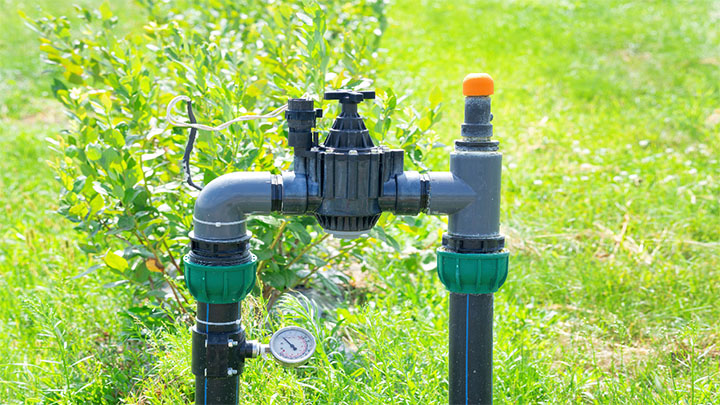Irrigation Valves and Solenoids
Sep 7th 2023
If you are looking to customize a drip irrigation system for your landscape, different zones may be required for a variety of reasons, including distance, watering frequency, duration and pressure requirements. Valves section off the irrigation system in order for you to easily create the specific zones you need. Solenoids attach to electronically controlled valves that regulate the flow of water. These are higher tech version of the simple valves that must be manually opened and closed.
AC and DC Valves
If you’re using a manifold and a controller, valves will likely be necessary. Valves are not often used when the hose bib is the main water source. Be sure to install a filter before using any valves to ensure a low risk of clogging. Automatic distribution valves are a great choice for areas without electricity because they are powered by water flow. But if you are looking to fully automate an irrigation system, you can choose valves powered by DC batteries or AC household currents. These are designed to be connected to a timer which sends a signal to the valve to open and close.
Direct burial wires are made to connect the valves to the timers and can be used with or without conduits. Each of these elements allows your irrigation system to run completely on its own, with only periodic checks required by you to ensure everything is running smoothly. Before purchasing, make sure that your controller and valve are compatible. DC controllers will only work with DC valves, and the same goes for AC controllers and valves.
Types of Valves
Anti-siphon valves are designed to incorporate a backflow preventer inside it already. These must be installed above ground and are recommended if you will be using any fertilizer or other potential contaminants to prevent them from entering the potable water supply. Angle valves are designed to allow for pressure moderation in case pressure drops inside the valve. These should be the valve of choice if your system is prone to pressure fluctuations. Globe valves do not prevent backflow, so they require an additional backflow preventer to be purchased. They also don’t regulate pressure, but they are typically the cheapest and most common valve available. Globe valves are typically buried underground inside a valve box.
Preventing Leaks
There are a few different options to prevent leaks from your valves in the irrigation system. One option is pipe dope, which is a thread pipe sealant made with rubber, plastic, and elastomers. This compound allows you to create an airtight seal to prevent leaks in your piping connections. However, pipe dope made for metal pipes should not be used with plastic piping. Some manufacturers may not honor existing warranties if pipe dope has been used.
An alternative is thread sealant tape. Widely available, this tape fills the empty space in pipe connections to prevent leaks. One potential issue consumers have is the risk of PFAS contamination with Teflon tape, so it’s important to research your specific product before investing.

